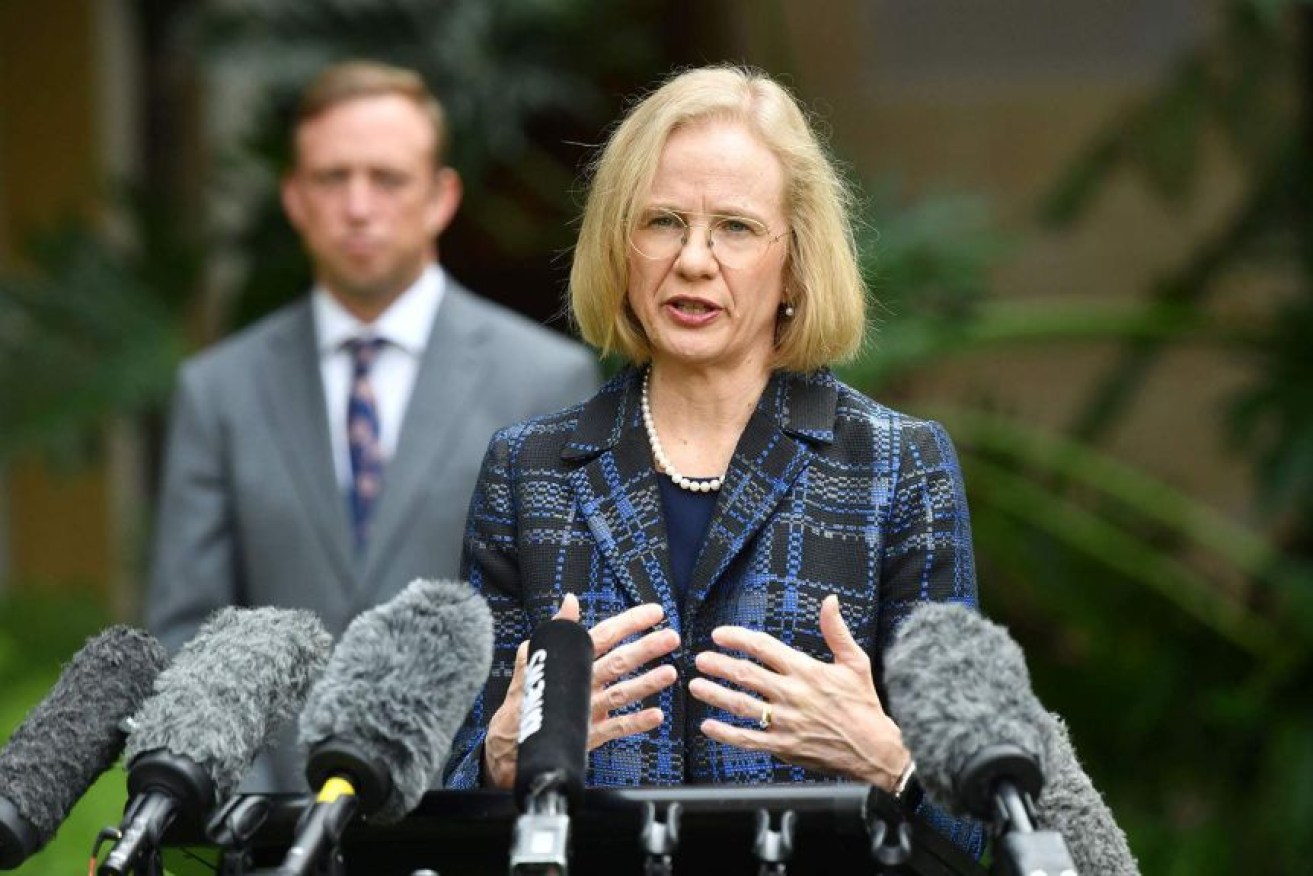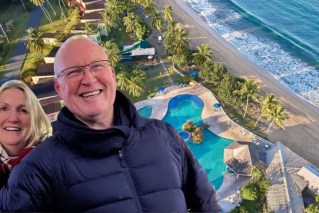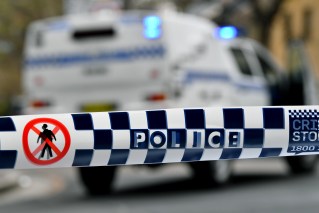‘Toxic’: Chief health officer responds to toll of receiving death threats as Qld records zero cases


Dr Young says the pandemic has taken an enormous toll on her, adding ‘very single person in our community ... has had to give up an awful lot’. Photo: AAP
Queensland’s chief health officer Jeannette Young has been placed under police protection after receiving death threats.
Dr Young said she feels safe and supported after her stance on border restrictions resulted in mounting criticism.
“The support has made me feel much, much safer in doing what I need to do,” Dr Young said.
“Of course it’s tough, but this is tough for an enormous number of people.”
Dr Young has been under sustained pressure from the state opposition and federal government over the state’s restrictions to allow people into Queensland on compassionate grounds.
President of the Australian Medical Association Queensland, Chris Perry, told Channel Nine the threats and public criticism were “quite toxic”.
“Jeannette Young has now a couple of police outside her house who go with her everywhere,” Dr Perry said.
He said Dr Young had been getting over 100 requests for exemptions per day, all of which she had been answering herself before she received extra staff to assist with her workload.
“She was working from 5am in the morning until 9pm or 10pm at night, it was quite hard work,” Dr Perry said.
“It has been quite stressful and it hasn’t been helped by cowardly people threatening to take the life of a woman.”
‘There’s no rule book’
“Every single day I think through all of the decisions that need to be made, and unfortunately there’s no rule book,” Dr Young said.
“We’re still learning every single day about this virus, and responding with the processes we put in place.
“The decisions that I make are based purely on the health outcomes that we need to see.
“They’re the same decisions no matter who would be around.”
Standing alongside Dr Young on Monday, state Health Minister Steven Miles said the decisions were difficult.
“Dr Young has always, I think, done her best to make the right decisions for Queensland,” Mr Miles said.
“Sometimes those decisions have been hard and the results have had impacts on people, on individuals and families, but the cumulative results of those decisions have kept Queenslanders safe.”
Dr Young said that eight months into the pandemic, responses and processes were being refined as they learned more about the disease.
Goondiwindi Shire Mayor and former LNP party statesman Lawrence Springborg said Dr Young had done an exemplary job.
“The CHO is a person that has been in the position now for the best part of a decade, she is highly competent, she is informed by science and has done a very good job in my view,” he said.
Mr Springborg said he believed a new roadmap outlining when restrictions would be eased, similar to one produced in April, would settle much of the debate over border restrictions.
“Having a decent framework which people can measure success against and have an indication of when we can expect things to return to normal based on certain successes would be very helpful,” he said.
State records zero new coronavirus cases
It comes as Queensland recorded a second consecutive day of zero new cases of coronavirus, leaving 30 active cases remaining.
Dr Young said she was concerned that people felt the latest outbreak was under control, when it was not.
“It’s not. I hope it is, but it’s too early to say it definitely is, we need to wait until we’ve seen 14 days in the clear,” Dr Young said.
She added that until there were 14 consecutive days of no new cases in Queensland outside of hotel quarantine, there would not be any relaxation to the number of people currently allowed to gather.
The state saw a steep drop in testing overnight with just 2934 tests conducted across the state.
Mr Miles said the number of tests were far below the target, which sits above 5000.
“We would just reiterate the message that anyone with symptoms should go and get tested,” Mr Miles said.
Of the 30 active cases in Queensland, 24 are in Ipswich and Brisbane’s south-west.
For that reason, Mr Miles said additional testing resources would be deployed in that region.
“Just to make sure there isn’t any unidentified community transmission happening in those locations,” he said.






